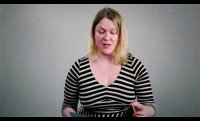Patience Pays
“First you live through the experience. Then you find out what it meant. Then you write.” Joyce Maynard’s essay “Patience and Memoir: The Time It Takes to Tell Your Story” in the September/October issue of Poets & Writers Magazine emphasizes the importance of the passage of time and reflection as a vital part of the process of memoir writing. Write a memoiristic essay about an event or situation from your distant past. Was this a subtle experience that became more significant with time or an experience that instantly changed your life? What had to happen before you could gain enough distance for insights to be revealed? How might the meaning of this experience potentially continue to evolve in the future?






